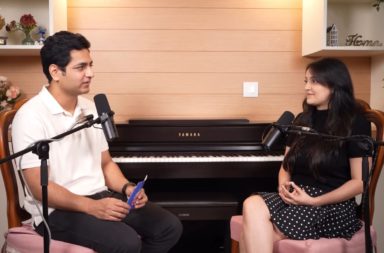In another episode of online fraudsters being smarter than the educated people, a man has lost more than a crore to someone who wanted to give him money in return of liking YouTube videos!
The complainant was duped into sending money to 25 different bank accounts between January and March of this year by a cyber scammer who promised significant profits for watching and enjoying YouTube videos.
“The complainant had got a WhatsApp message asking him if he was interested in a part time job that could earn him between Rs 5,000 to Rs 7,000 per day. During the chat, the message sender explained that he would send YouTube videos, and his job would be to watch, like and take its screenshot and send it on the same WhatsApp number. He was asked to pay Rs 5,000 as registration and other fees. He then received a link of a YouTube video and followed instructions. He also received Rs 10,000 in his account,” said a police officer, reported Times of India.
The accused then asked the complainant to join his Telegram group and said he would be given different tasks to complete which could earn him a huge earning. Convinced, the complainant joined the Telegram group. “He was asked to deposit money as investment and was given different tasks to complete. The accused told him he would make good profit once he completed the tasks,” said a police source.
The victim was also urged to join a Telegram group so that he could participate in various chores for which he would be paid handsomely. The plaintiff was then informed that the task given to him was improperly completed when he requested the return of his invested funds and profits. At that point, he filed a FIR.
TOI also wrote that DCP Balsing Rajput of the cyber crime wing of the Crime Branch advised citizens against following any message or link received from an unknown person/source. “Generally, accused in such fraud cases give different bank account numbers each time; this should raise suspicion. Moreover, the initial profit in such cases also comes to a victim from a third party or a different account. These are signs of fraud one must be aware of in case anyone gets a part time job message. One must immediately approach the police,” said Rajput.
Also Read: Rashmika Is the First Indian Ambassador For Onitsuka Tiger
How are these cases happening?
To pull off the aforementioned scam, cybercriminals use end-to-end encrypted instant messaging services like WhatsApp and Telegram. Users will first receive a text message from an unknown number requesting them to “like” a few YouTube videos in exchange for Rs. 50.
The majority of these videos are commercials for well-known brands like Chanel, Gucci, and others. It is requested that users “like” the videos and provide screenshots of them to WhatsApp.
Users are now promptly paid the promised sum after sharing the screenshots. Thus, you will receive Rs. 50 for each video you “like.” You will receive Rs. 150 for “liking” three videos, and so forth.

How to protect yourself from these scams?
It is natural that claims of quick money are enticing, but users should use caution and refrain from responding to messages or calls from shady numbers that make similar claims.
Former DRDO scientist OP Manocha told ABP Live that “human emotions are attacked by cybercriminals, and we must understand how to combat them.” According to the co-author of the book “Cyber Encounters,” “Greed, curiosity, and fear” are the three reasons why consumers become targets of cybercriminals.
While the “greed” element of promises of quick money is self-explanatory, hackers utilize the “curiosity” card to entice consumers into clicking on harmful links in order to see what is on the other side of them.
We suggest you to be safe with the internet when you use it. Be smart and do not let anyone fool you with easy tricks and treats.


